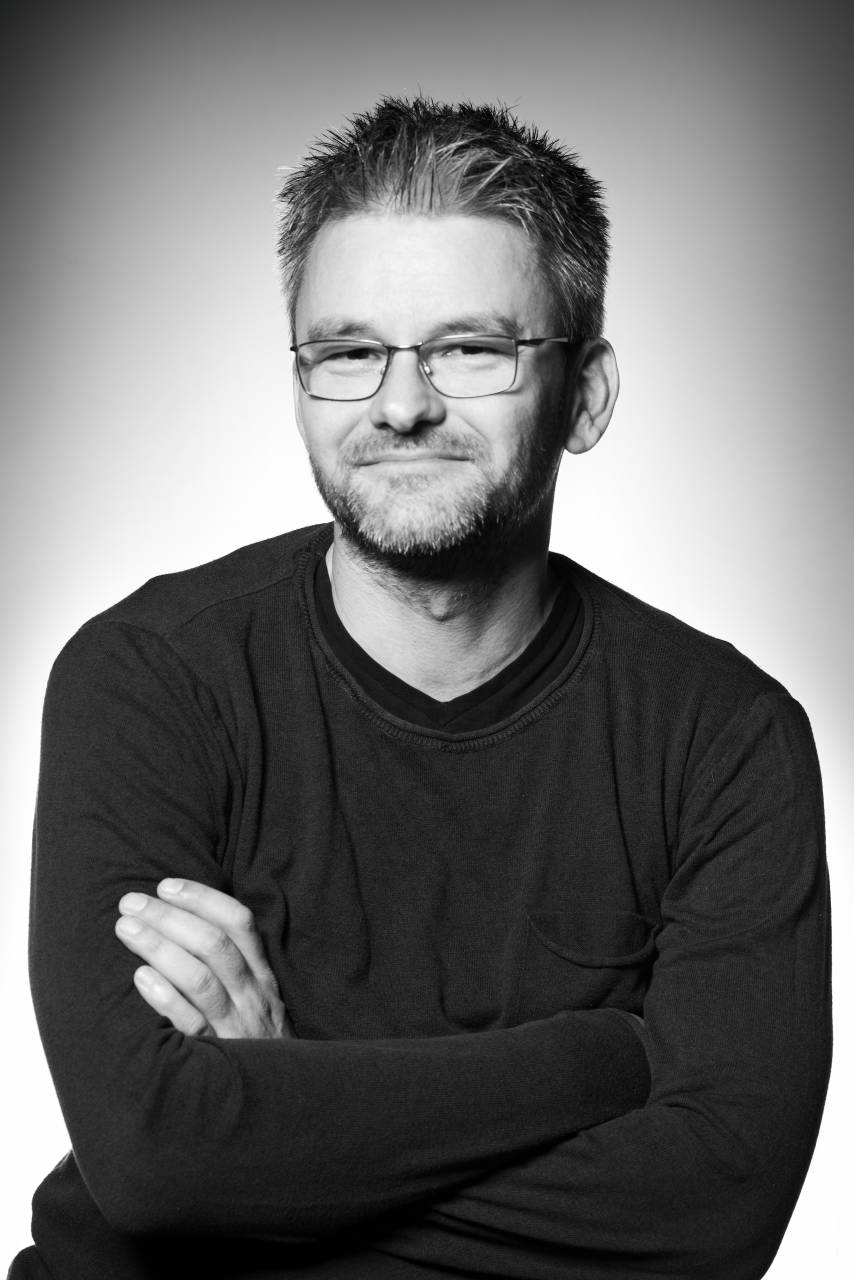Hidvégi Dániel

Dániel Hidvégi - sound technician
- Sound technician
"Without them, there would be no theatre..." This thought inspired our interview series, in which we take a twist on the audience experience.
► This time we interviewed Dániel Hidvégi, whose sound and video engineering work can be seen in the IMITATION OF LIFE performances. In addition to IMITATION OF LIFE, Dani worked with us on the monodrama 1 LINK.
𝐏: How long have you been involved with Proton Theatre? How did the "meeting" happen?
𝐃: The theatre was looking for a sound and video technician for IMITATION OF LIFE. Zoli Rigó - with whom I had worked elsewhere before - asked me if I would like to join, so I was invited to take over the performance. It happened during the Berlin tour in autumn 2016. I had to travel immediately to join as a technician. IMITATION OF LIFE is a very exciting and technically exceptionally complex performance because of its "spinning centrifuge" dimensions.
For 1 LINK the crew also had to work very closely together, because originally there were four people working on it, but in the end it was just the two of us with the video guy. Here we had live video DJing with a separate music supervisor, and I had to rework the sound so that the performance could be done without having to organise so many people. Even though it is a monodrama, it was a technical challenge, there were a lot of signals to watch out for, a lot going on in the hour and a half.
𝐏: It couldn't have been easy to instantly jump into IMITATION OF LIFE on a foreign tour, is there any tour that you remember particularly fondly?
𝐃: I've toured a lot with IMITATION OF LIFE, but it would be difficult to rank them, because each one is different - just because of the changing environment, and who I work with on a tour is also a determining factor, there are different moods in terms of work. Still, Voronezh (2017) and Naples (2022) remained the most memorable tours I've done. But Voronezh (2017) and Naples (2022) still stick out more, the former perhaps because of the atmosphere, and Naples came after a longer hiatus and is still a fresh experience. The atmosphere of Voronezh in Russia was unique - not in a bad way, just a very different attitude of the local technicians and a very different environment.
𝐏: What was the reason for this longer break?
𝐃: I took on another job, went filming, couldn't continue and then completely handed it over in 2018. Then everything stopped around covid anyway, so I missed quite a few years, last year I did Naples for the first time in over three years.
𝐏: Which is your favourite and most important Proton performance and why?
𝐃: I saw FRANKENSTEIN-PROJECT for the first time from Proton, and it was in the Atrium lobby of the May 1 cinema. I also saw DISGRACE and WINTERREISE. Of course, it's quite different to look at a performance when you have a "working relationship" with it, it's hard to separate yourself from the impression you have of it as a technician. As a spectator, FRANKENSTEIN-PROJECT really impressed me with the way it is performed, the venue, the way it involves the environment in the performance; it does not create a detached space as in IMITATION OF LIFE. The latter only works if everything has its place, it is also very constructed to the viewer in terms of the space and the viewer's point of view. FRANKENSTEIN-PROJECT on the other hand, only works if the environment can be intimate. I would also point out the acting, but that is the case with all Proton performances.
𝐏: 'When everything goes wrong' - Technical difficulties are almost always there, but were there any that were really memorable for you?
𝐃: (silence) Well, if I have to think about it that much, fortunately not. :) Let's just say the video is a boogeyman. Of course, anyone who is a pro at it - unlike me - would certainly disagree. The subtitling can be a challenge, especially during the opening scene, as we are projecting a live scene on set. Until we found the right way to do that, it was always a stress factor. We get the foreign language text for the performance, but there's always a question mark whether it's right. Then it can be risky to play the text at the very end. There were situations when the final video arrived only a few hours before the performance and had to be put into the player, waiting until the last minute for the right file format. With the live camera part, there is always a pressure to get it to work reliably, so as not to lose the video signal. And then the loading can be exciting too, sometimes you have to pack and unpack in places that are not designed for that, especially not for such monumental metal scenery elements.